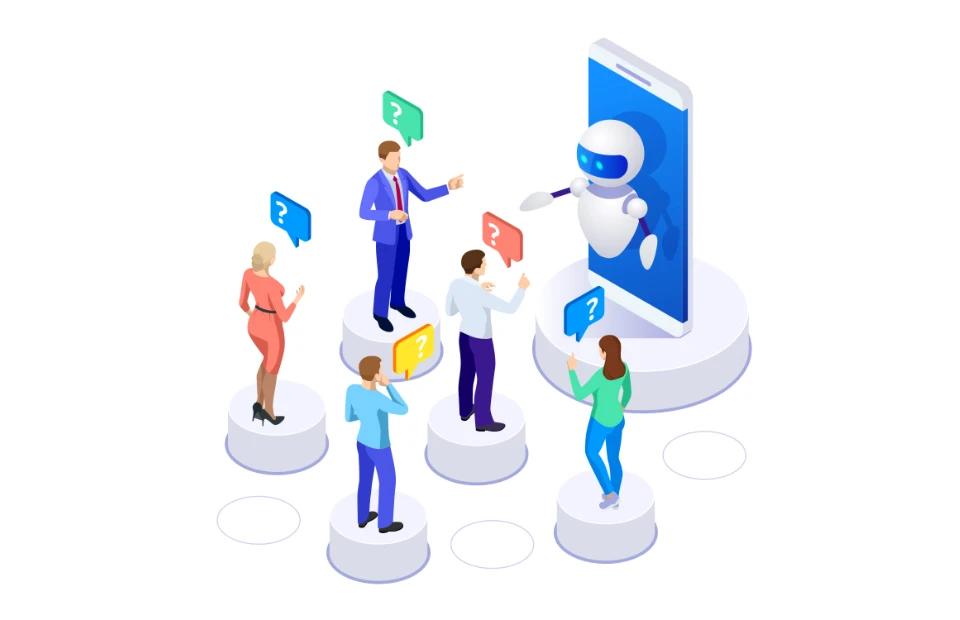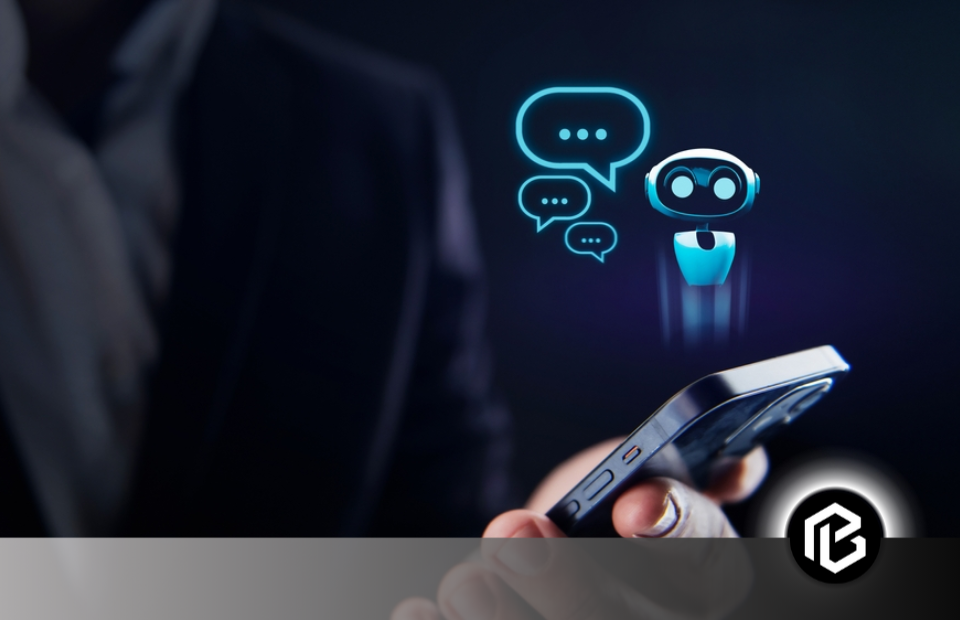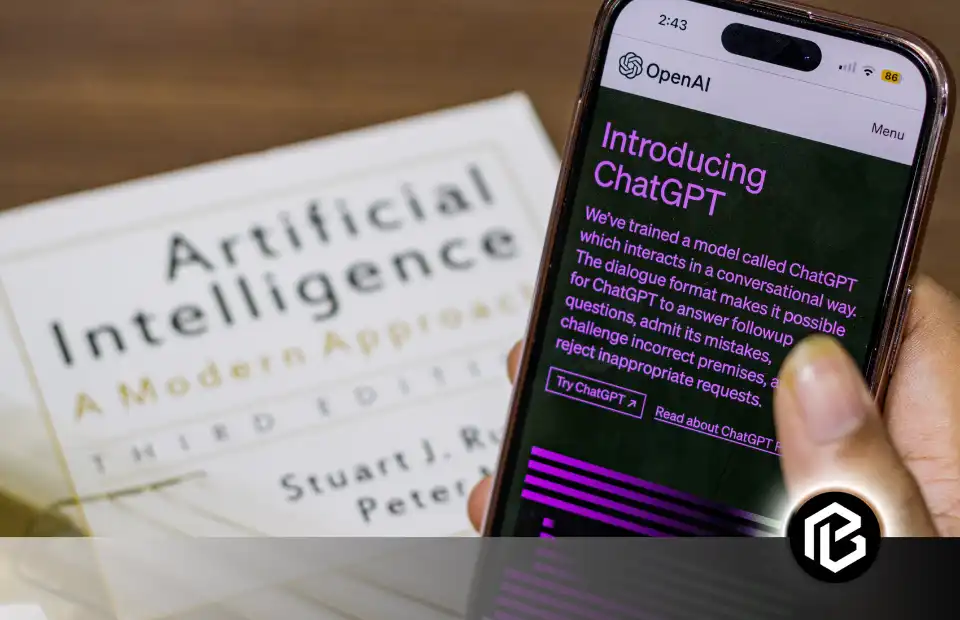Chatbots can be a great tool for marketing automation and AI because they are fast, smart, and efficient. Chatbots and AI are great tools for strategically using marketing automation and AI. In the era of digital marketing, businesses are constantly working to discover innovative ways to attract more traffic from customers. For this purpose, they tend to optimize their marketing strategies.
Chatbots can be one of the most powerful tools that leverage AI to automate and advance various marketing functions.
A chatbot is a computer program that is designed to mimic human voice through commands, text chats or both. Modern chatbots are AI-powered chatbots that are available online and they can converse with the user in his native language.
They establish the way a human would behave as a conversational partner. Such chatbots use deep learning and natural language processing, but simpler chatbots have existed for years.
Chatbots and Marketing Automation

Chatbots and modern automation tools for marketing allow modern entrepreneurs to personalize brand messaging, perform outreach, and deliver customer support.
These automation tools increase efficiency and productivity without the requirement of manually writing, drawing slides, and computing numbers on a calculator. Generative AI is embedded in the core of organizations and the way marketers work.
In the past 15 years, marketing has evolved from being a right-brain type of general skill to a more specialized skill set. Such as digital marketing or marketing technology. However, with generative AI the core marketing activities are transforming.
Recent studies have revealed that Chatgpt has improved the right-brain performance of marketers by 40 percent.
Personalization and Customer Engagement
Generative AI has been trained on existing data and content. Because of that, it reduces the positive and negative divergence of outcomes. Such as an email showing your personalized content will make you feel a productive outcome.
However content overloading and being chased over for the same content again and again will result in a negative impact. Generative AI aiming to solve this problem based on equalizing marketing is certainly not a productive outcome.
For gaining a positive outcome, marketing functions need to be strategically reskilled and reorganized to embed people who can build, use, and diffuse predictive AI tools. They can help them in effective decision-making. There should be a team of marketing data scientists, and marketing data engineers to build solutions that can be distributed to all marketers.
In this way, they can facilitate personalized interaction with users by analyzing user data and behaviour. Based on that they can provide recommendations, content, and product suggestions leading to more meaningful and effective marketing.
24/7 Accessibility and Scalability

Chatbots can provide 24-hour customer support and engagement to make sure that customer demands are completed on time, even other than working hours. These AI-powered virtual assistants neither get tired nor take breaks. They ensure that marketing efforts are always functioning properly even when the team has not.
They respond quickly to customer requests which enhances the user experience and as a result, provides improved customer satisfaction. Fast responses to queries of customers can lead to reduced customer frustration and potential cart neglect. This fast-paced interaction leads to increased conversion rates and more effective marketing campaigns.
Furthermore, like other automation tools such as Chatgpt, chatbots can also control multiple interactions simultaneously which makes them highly scalable. Chatbots can adapt to the demand of ten or ten thousand users ensuring a consistent user experience.
Also, chatbots provide consistent brand messaging and information to all users across all interactions contributing to effective marketing strategy.
Data Collection and Insights
Chatbots can gather important user information during interactions. This real-time data can be used to analyze customer preferences, pain points, behaviour patterns, and choices. Real-time data analysis constantly addresses marketing strategies and campaign targeting.
To pre-qualify leads, chatbots ask questions and assess readiness to make a purchase. This assists marketing teams in ensuring an efficient sales process by prioritizing leads for follow-up. Chatbots can be combined with various messaging platforms, websites, and social media platforms. This allows businesses to engage with customers on the platform they prefer.
Chatbots optimize marketing content and strategies by facilitating A/B testing. This testing technique delivers different versions of messages to different user segments resulting in effective and optimized strategies.
Moreover, to make marketing efforts relevant and valuable, chatbots can adapt their responses and recommendations for their users. They do so by analyzing the user’s behaviour and preferences.
Cost-Effectiveness and ROI
When we use automated chatbots for optimizing marketing strategies for businesses, routine tasks reduce the need for manual labour. This saves both time and money and allows businesses to allocate resources to crucial areas of marketing strategy.
Additional costs are required for integrating chatbots with the existing business systems such as your CRM or other customer service channels. Chatbots function most effectively in omnichannel customer service systems to achieve a vital smooth integration.
For an effective cost-benefit analysis the benefits of implementing a Chatbot must be identified and quantified. The potential benefits offered by the AI-powered Chatbots for strategic marketing services include:
- Improved Customer Service
- Increased Efficiency
- Scalability
- Enhanced Customer Experience
After you have determined the costs and benefits of implementing a Chatbot, now you can calculate the net benefit by subtracting total costs from the total benefits. This works as a financial viability for chatbots.
Then you can compare the initial investment to determine the payback period or return on investment. This will help the investors and decision-makers understand how long it will take to cover the initial investment. It will also tell when Chatbot will start generating income.
Future Trends and Evolving Possibilities
Marketing Automation Association says that chatbots are going to be game changers in the future of marketing. You should stay tuned for more developments in Chatbots as marketing continues to a new era of growth. Developers are looking for some unique ways for you to stay on the edge of the curve by combining chatbots with existing automated marketing tools.
Moreover, the advancements in Natural Language Processing (NLP) and Machine Learning (ML) are moving chatbots towards the future where their discussion closely relates to human interaction. Users will experience natural and engaging interaction with chatbots providing improved user satisfaction.
Chatbots will play a central role in shaping contact centres with the advancements in technology. They are expected to manage routine shifts where they can improve to the point that they can operate contact centres autonomously.
Chatbot’s equipped voice capabilities will empower users to interact with chatbots using voice commands. Enterprises will employ chatbots for a variety of tasks such as HR inquiries, IT support, and much more. By automation, chatbots will enhance work efficiency which will help employees to focus more on strategic tasks.
Conclusion
Integrating chatbots into marketing automation and AI strategies permits you to streamline options. It provides better and improved user experience, and leverages data-driven insights to do informed decision-making in marketing.
They engage with their users in a personalized and efficient manner that makes them strategic to optimize their marketing efforts. Chatbots offer a unique integration of personalization and automation.
By providing instant responses, they enhance customer engagement. The combination of chatbots into marketing strategies can streamline marketing efforts. These versatile chatbots are a powerful tool for businesses of all sizes. Chatbots, AI, automation, and marketing will continue to shape digital marketing in future.
Frequently Asked Questions on Chatbots
How do chatbots contribute to marketing automation strategies?
Chatbots contribute to marketing automation strategies by automating customer interactions, lead generation, qualification, and nurturing processes, delivering personalized content and recommendations, and providing instant support and assistance to prospects and customers.
What are the benefits of using chatbots in marketing automation?
The benefits of using chatbots in marketing automation include improving customer engagement and satisfaction, increasing lead conversion rates and sales, reducing response times and operational costs, gathering valuable customer insights and feedback, and enhancing overall marketing efficiency and effectiveness.
How do chatbots leverage AI technologies to enhance marketing efforts?
Chatbots leverage AI technologies such as natural language processing (NLP), machine learning (ML), and predictive analytics to understand user intents, context, and preferences, deliver personalized recommendations and responses, and continuously improve their conversational capabilities over time.
In what ways can chatbots be strategically used in marketing campaigns?
Chatbots can be strategically used in marketing campaigns to qualify leads, segment audiences, deliver targeted messages and offers, provide interactive content experiences, drive website traffic and conversions, conduct surveys and polls, and facilitate customer service and support interactions.





